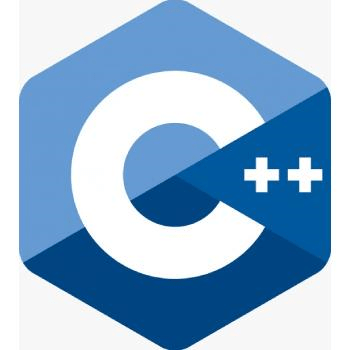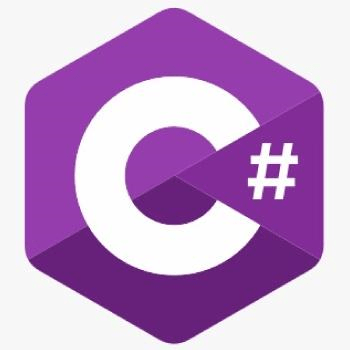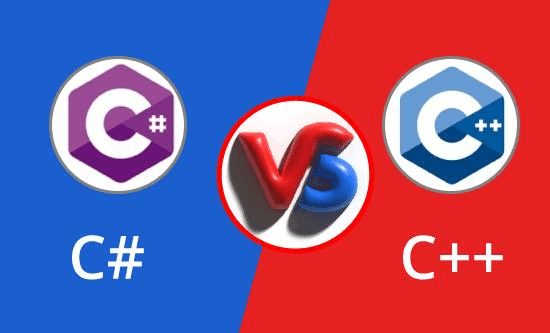C++ vs C#
What exactly is C++ programming?
Bjorne Stroustrup is the creator of the C++ programming language. His goal was to create a powerful object-oriented programming language with the capabilities of C. It was originally dubbed C with Classes because it combined object orientation and class capabilities. It is an intermediate language since it encompasses both high-level and low-level language. Because C++ is merely an expanded version of C, it is easy to learn. If you prefer object-oriented programming, you may start with C++.
C++ is a programming language that allows for multiple inheritances, or the inheritance of many classes from a single base class. For example, the 'category a' system can benefit from both 'category b' and 'category c' to combine performance in both categories in one place. C++ comes with a slew of libraries based on the Standard Template Library that cover all of a program's fundamental functionalities.
C++'s characteristics

- Object-Oriented Programming: C ++, as mentioned earlier, is an object-oriented planning language. It promotes fast program writing and makes it easy to alter code as needed without disrupting the overall structure. It improves code readability and debugging, giving significant value to real-time issue solutions.
- C++ is a machine-independent programming language: C++ program may be developed once and executed on every platform, including Windows, Mac OS X, Linux, and others. It is, however, machine-independent rather than platform-independent. This implies it generates a unique.exe file for each platform.
- C++ is a user-friendly language with a syntax that closely resembles C. Deconstructing and understanding a program is also simple.
- It is encapsulated with both high-level and low-level programming languages. It comes close to being readable by humans.
- C++ is a compiler-based language that is more efficient than other object-oriented languages like Python and R.
- Unused memory of variables in the system is provided directly by the variable memory allocation.
- C++ features integration tools like code optimizers, program visualizes, and incremental compilers that may make working with the language easier.
What exactly is C# programming?

Anders Hjelsberg created the C# programming language, sometimes known as C Sharp. It was first known as 'Cool,' but was eventually called C Sharp. C Sharp is a high-level object-oriented programming language based on C++. The backbone of C# is C. C#, along with.NET and Visual Studio, was launched by Microsoft.
The C# compilers require a specified set of class libraries in order to work. Additional functionality is provided via class libraries developed on top of the.NET framework.
C#'s characteristics
- Object-Oriented Programming: C# is a true object-oriented programming language thanks to the.NET framework. It is strengthened by encapsulation, polymorphism, and inheritance.
- Harmony with other languages: The.NET framework allows users to utilise libraries from other programming languages alongside C#, making code development, management, and deployment easier.
- C# is a difficult but straightforward language to master: Complex operators are not included.
- C# is type-safe: because it has access to memory and the ability to execute the program. Arrays are tested quickly and are indexed zero-based.
- Speed: C# contains several built-in integrations that help developers write code with fewer mistakes, which speeds up the compilation and execution process.
- C# includes record types: which allow users to build immutable objects that may be used in place of classes and structs.
- Top-Level Statement: Unlike other C-based languages, C# supports top-level statements. This allows users to omit classes, blocks, voids, and other elements, resulting in shorter code that may be executed.
Important Distinctions
- C ++ is a medium-level language that extends C with object-focused skills, while C # is a high-level language.
- C ++ integrates programs into Machine Codes, while C # integrates programs into CLR, or Standard Language activity.
- When the syntax is followed, C++ does not tell the user if there are any issues before compilation. C# alerts users about compiler problems, which makes the job easier.
- Programmers in C++ can use pointers at any point in time. Only in unsafe mode may C# programmers utilize pointers.
- In C++, memory management is done by the programmer manually. Because C# runs on a virtual computer, memory management is handled automatically.
Head Comparison between C# and C++

| Characteristics | C# | C++ |
| Type of Language | C# is an object-oriented programming language. | Because it is based on C, C++ includes both a high-level and a low-level language. It is a medium-level language. |
| Process of Compilation | In ASP.NET, C# compiles applications to the Common Machine Runtime (CLR), which is interpreted by Just In Time (JIT). | C++ generates machine code from programs. |
| Memory Administration | Automatic memory management is carried out. | Manual memory management is used. |
| Difficulty | In C#, hierarchy is basic and straightforward. | C++ has a lot of difficult-to-understand features. |
| Platform | Outside of the Windows Operating System, C# is rarely utilized. | C++ is utilized on a variety of platforms, including Linux, Windows, and macOS. |
| Individual Applications | It is not feasible to create independent apps. | C++ may create standalone apps or applications that run locally without needing the execution of any other functions. |
| Object-Oriented | C# is an object-oriented programming language. | C++ is not an entirely object-oriented programming language. |